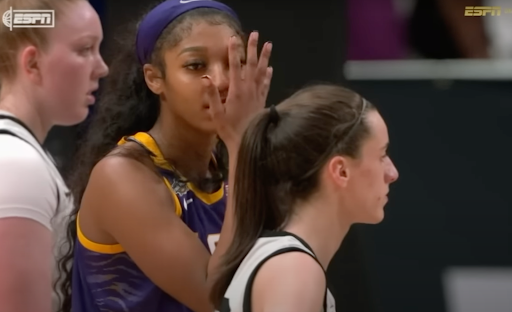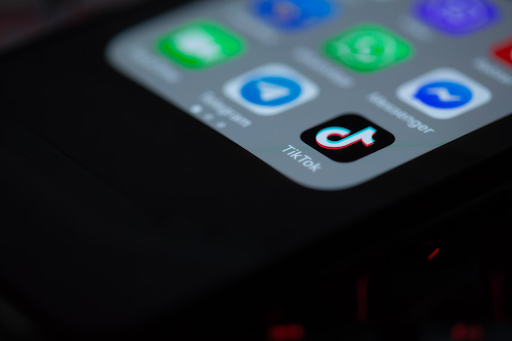
Angel Reese is one of the most dominant athletes the NCAA has ever seen. She holds the NCAA record for most double-doubles in a season and is the single-season rebounding leader in Southeastern Conference (SEC) history.
Besides being named the 2023-24 SEC Player of the Year, some of her other accolades include 2023 BET Sportswoman of the Year, 2023 ESPY for Best Breakthrough Athlete, 2023 Final Four Most Outstanding Player and 2023 First Team All-SEC & Defensive Team.
To top it off, she is an NCAA national champion who is forever etched in NCAA immortality. In 2023, Reese and Louisiana State University (LSU) defeated the Iowa Hawkeyes.
NBA legend Shaquille O’Neal can testify to Reese’s magnificence, stating numerous times that “she’s probably the greatest athlete to ever come out of LSU sports.” Reese has done just about all you can do as a college basketball player, and she played a huge part in changing the way people view women’s sports. Nonetheless, she is still faced with internet trolls and constant criticism. Why? Because she’s a Black woman who is unapologetically herself.
Before the “Bayou Barbie” was born, Reese was the ‘Baltimore Barbie.’ Reese grew up in Baltimore, Maryland, attending St. Frances Academy in Baltimore where she finished her career as a five-star recruit and committed to the University of Maryland under head coach Brenda Frese. After her sophomore season, she entered the transfer portal and took her talents to Baton Rouge.
On X, Reese says that growing up in Maryland taught her everything she knows about “hooping outside and talking trash.” Unfortunately, this culture and style of basketball isn’t seen everywhere like it is in Charm City. In Baltimore, trash-talking your opponent comes with the territory.
As women’s sports have grown and Reese has been given a larger platform, her Baltimore roots have been seen more. For some reason, when other people do it there’s no issue, but when a Black woman does it there’s a problem.
After winning the National Championship in 2023, she should have been on top of the world. Instead, she was being called “classless” by grown adults. At just 20-years-old, Reese was being judged harshly by the press over competitive gestures made in the biggest game of her career.
Two days prior to the NCAA Championship game in 2023, Caitlin Clark, the star player for Iowa, did one of the same taunts Reese did to the South Carolina Gamecocks and it was met with public praise.
She had a celebration made famous by popular wrestler, John Cena, and he even tweeted out about it. The fact that Clark’s actions were worthy of celebration and seen as commendable, while Reese’s actions were deemed reprehensible shows unfairness. There’s a double standard at play, displaying a bias that extends beyond just Black and white players. It doesn’t stop there though.
In sports, there’s a sexist bias where the attitudes toward men and women are not the same. When women engage in trash-talking, it’s often seen differently than when men do it.
Many see Michael Jordan as the greatest player of all time in his respective sport. The same can be said for Tom Brady. One thing they share in common, besides being substantially successful throughout their careers, is that they are two of the biggest trash talkers ever. Yet neither has faced the same level of national ridicule and shaming as Reese.
America has created an unseen narrative on athletes. Men and white women are allowed to trash-talk and show emotion, and it’ll just be seen as having a passion for the game. If a Black woman does it though, it’s labeled as “unprofessional.” This is a reflection of broader societal issues where the actions of women, particularly those of color, are met with more severe judgment compared to men.
If viewers want to shift the narrative surrounding Black female athletes, we have to stop holding them to different standards than others. Black women are allowed to talk trash and get hype without being nationally bashed like Angel Reese.
Concluding her phenomenal two-year tenure at LSU, Reese recently declared for the WNBA Draft, citing a motivation by “the girls that look like her” — little Black girls who already have targets on their backs, simply because of their race and gender.
Reese knows she doesn’t fit the narrative and people will always critique her no matter what. Despite that, she won’t allow anyone to change her and keep being unapologetically herself — even if it makes the haters angry.








Jawed Halepota • Apr 17, 2024 at 9:29 am
Great writing Q